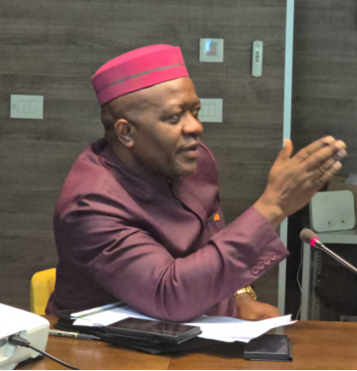Liberia’s Finance Minister, Augustine Ngafuan, has unequivocally affirmed the government’s commitment to upholding the national minimum wage of US$150 per month for all public sector employees. This assurance comes in response to widespread public criticism and allegations that some civil servants are receiving salaries below this legally mandated threshold. Minister Ngafuan emphasized that the government has taken concrete steps to ensure compliance with the Decent Work Act, which stipulates the US$150 minimum wage for both public and private sector workers. He attributed the perceived discrepancies in salaries to a misunderstanding between gross pay and net pay, emphasizing that deductions for taxes, social security, and loan repayments do not constitute a violation of the minimum wage law.
The Minister detailed President Boakai’s explicit directive during the 2025 budget formulation to ensure adherence to the minimum wage standard. He highlighted that the Ministry of Finance and Development Planning has taken direct responsibility for enforcing this within the central government’s payroll system. While the Ministry of Labor oversees compliance within the private sector, the Finance Ministry’s focus on government employees underscores the administration’s dedication to fair compensation practices. Minister Ngafuan underscored that the budget was specifically adjusted to reflect this commitment, demonstrating the government’s proactive approach to addressing the issue.
Addressing the complexities of the Liberian salary system, Ngafuan explained the dual-currency structure wherein 70% of salaries are disbursed in US dollars and the remaining 30% in Liberian dollars. He acknowledged that this structure, combined with individual employees’ varying financial obligations, might lead to differences in take-home pay. However, he stressed that these individual deductions do not affect the official salary, which adheres to the mandated minimum wage. This clarification aimed to dispel public misconceptions about potential underpayment and reinforce the government’s commitment to adhering to the law.
Recognizing the importance of transparency and accountability in public financial matters, Minister Ngafuan acknowledged the need for greater public awareness and understanding of compensation and budgeting processes. He emphasized the government’s commitment to enhancing public financial literacy through open communication and educational initiatives. This proactive approach seeks to empower citizens with the knowledge necessary to understand and scrutinize government financial practices, fostering a more informed and engaged citizenry. He encouraged government employees who have questions or concerns about their pay to seek clarification through established administrative channels, ensuring that individuals have access to the information necessary to understand their compensation.
The Minister’s clarification follows a recent public disagreement between the government and a former official of the Finance Ministry from the opposition Congress for Democratic Change (CDC) regarding discrepancies in the civil service wage bill. The disagreement centered around US$63.3 million identified as unaccounted for in the Ministry of Finance and Development Planning’s Mid-Term Fiscal Year Financial Report. This public debate further highlighted the need for transparency and accountability within the government’s financial operations. The exchange involved former Assistant Minister of Finance, Benedict Kolubah, and the Director General of the Civil Service Agency, Dr. Josiah Joekai, and focused on the increase in the wage bill despite the removal of “ghost names” from the payroll and a lack of new appointments within the civil service. This controversy added to the public discourse on the government’s payroll management and underscored the importance of the Finance Minister’s clarification regarding adherence to the minimum wage law.
In conclusion, Minister Ngafuan’s emphatic assurances, coupled with the government’s proactive approach to budget adjustments and commitment to public financial literacy, aim to address concerns surrounding civil servants’ salaries and reinforce the administration’s dedication to fair labor practices. The clarification regarding the dual-currency salary structure and the distinction between gross and net pay serves to address public misconceptions and promote transparency. The government’s commitment to open communication and the encouragement of inquiries through administrative channels further demonstrates its commitment to accountability and addressing any lingering concerns regarding adherence to the minimum wage law. The recent public debate regarding discrepancies in the wage bill underscores the importance of these efforts and highlights the need for continued vigilance in ensuring proper financial management within the public sector.


